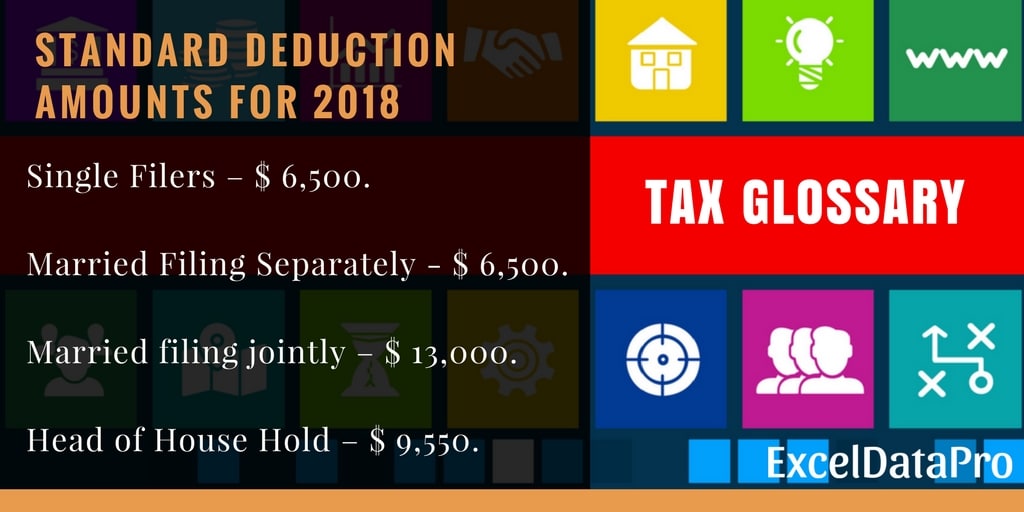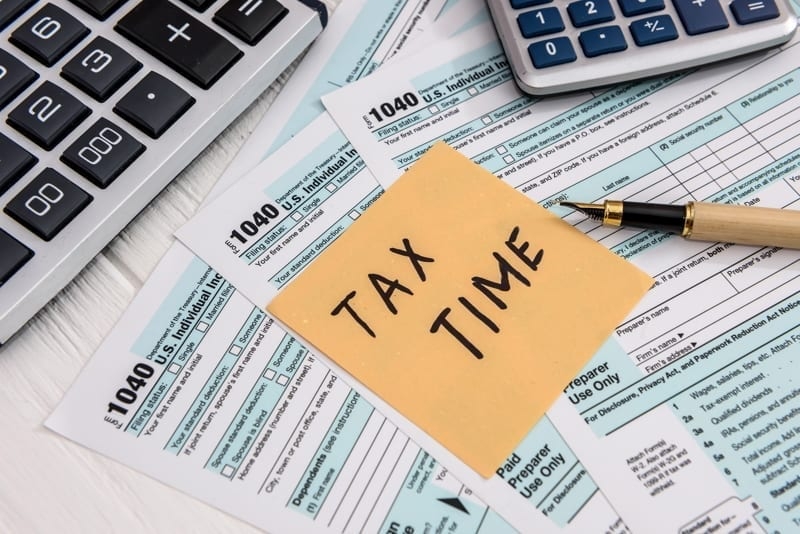Everything about the Foreign Earned Income Exclusion: Optimizing Your Standard Reduction Conveniences
The Foreign Earned Earnings Exclusion (FEIE) provides a useful opportunity for united state people living abroad to minimize their tax obligation obligations. Comprehending the qualification criteria is essential for those seeking to benefit from this exclusion. Additionally, claiming the common reduction can improve total tax obligation advantages. Nonetheless, handling this process includes mindful interest to detail and an awareness of usual pitfalls. Exploring these facets can supply clearness and maximize possible tax obligation advantages.
Comprehending the Foreign Earned Earnings Exclusion (FEIE)
The International Earned Earnings Exclusion (FEIE) enables U.S. people and resident aliens working abroad to exclude a portion of their international profits from government earnings tax obligation. This stipulation functions as a financial alleviation mechanism, enabling migrants to maintain a bigger share of their revenue made in foreign nations. By reducing taxed earnings, the FEIE helps relieve the problem of double taxes, as individuals might additionally go through taxes in their host countries. The exemption applies only to earned income, which consists of incomes, salaries, and expert charges, while passive earnings and investment gains do not certify. To gain from the FEIE, individuals need to file details kinds with the IRS, outlining their international earnings and residency - FEIE Standard Deduction. Recognizing the subtleties of the FEIE can greatly affect monetary planning for U.S. citizens living overseas, making it necessary for migrants to stay informed regarding this advantageous tax arrangement
Qualification Standards for the FEIE
To get approved for the Foreign Earned Revenue Exemption (FEIE), individuals should fulfill details qualification requirements. This includes gratifying residency demands, passing the physical presence test, and developing a tax home in an international country. Each of these elements plays a vital function in determining whether one can gain from the exemption.
Residency Demands
Meeting the residency demands is essential for people seeking to certify for the Foreign Earned Income Exclusion (FEIE) To be eligible, taxpayers should develop an authentic home in a foreign country or nations for an undisturbed period that generally covers an entire tax year. This demand stresses the need of a deeper connection to the foreign area, moving beyond plain physical visibility. People should show their intent to live in the foreign nation and have developed their living circumstance there. Variables such as the length of stay, kind of housing, and local area involvement are taken into consideration in figuring out residency. Fulfilling these standards is crucial, as failure to do so might invalidate one from taking advantage of the FEIE.
Physical Existence Test
Establishing eligibility for the Foreign Earned Revenue Exemption (FEIE) can likewise be attained via the Physical Existence Test, which needs individuals to be physically present in a foreign nation for at least 330 complete days throughout a consecutive 12-month period. This test is beneficial for those that may not fulfill the residency need yet still stay abroad. The 330 days have to be complete days, indicating that any kind of day spent in the United States does not count towards this total amount. It is essential for individuals to preserve accurate records of their travel dates and locations to sustain their cases. Efficiently passing this test can considerably decrease gross income and enhance financial end results for expatriates.
Tax Home Place
Tax home location plays a vital function in identifying eligibility for the Foreign Earned Income Exemption (FEIE) To certify, an individual should establish a tax obligation home in a foreign country, which suggests their key workplace is outside the United States. This is distinct from a mere home; the individual should conduct their operate in the international country while preserving a substantial connection to it. The internal revenue service calls for that the taxpayer can demonstrate the intent to remain in the international place for an extensive duration. Furthermore, preserving a home in the U.S. can make complex qualification, as it might recommend that the person's true tax home is still in the USA. Recognizing this criterion is crucial for making best use of FEIE benefits.
Just how to Claim the FEIE on Your Income Tax Return
Claiming the Foreign Earned Revenue Exemption (FEIE) on an income tax return requires cautious attention to detail and adherence to specific IRS standards. Taxpayers need to initially confirm eligibility by meeting either the bona fide house test or the physical presence examination. As soon as qualification is confirmed, they must finish internal revenue service Type 2555, which details international made revenue and pertinent info regarding their tax obligation why not find out more home.
It is necessary to report all international revenue properly and preserve suitable paperwork to sustain claims. Taxpayers must also know the optimal exclusion limitation, which is subject to annual changes by the internal revenue service. Declaring Type 2555 together with the yearly tax return allows taxpayers to omit a part of their international earnings from united state taxes. Lastly, it is advisable to speak with a tax specialist or IRS resources for upgraded information and guidance on the FEIE process, guaranteeing conformity and maximization of prospective benefits.
The Criterion Reduction: What You Need to Know
How does the basic deduction impact taxpayers' general monetary circumstance? The common deduction serves as a substantial tax obligation benefit, lowering taxable earnings and possibly lowering tax obligation obligations. For the tax obligation year 2023, the basic reduction is established at $13,850 for solitary filers and $27,700 for couples filing collectively. This deduction streamlines the declaring procedure, as taxpayers can decide for it rather of detailing deductions, which needs detailed record-keeping.

Taxpayers earning foreign income might still declare the typical reduction, profiting from decreased taxable earnings also while using the Foreign Earned Earnings Exemption (FEIE) However, it is essential to keep in mind that the standard reduction can not be combined with itemized reductions for the same tax obligation year. As a result, understanding the standard reduction allows taxpayers to make educated choices regarding their tax strategies, taking full advantage of available benefits while making certain compliance with internal revenue service policies
Strategies for Optimizing Your Deductions
Making the most of deductions under the Foreign Earned Income Exclusion requires a clear understanding of earned income limitations and the benefits of claiming real estate exclusions. In addition, making use of Type 2555 properly can enhance the potential for substantial tax obligation cost savings. These techniques can considerably affect the total tax obligation obligation for migrants.
Understand Made Revenue Limitations
While lots of expatriates seek to reduce their tax obligation problem, comprehending the gained earnings restrictions is vital for effectively leveraging the Foreign Earned Revenue Exclusion. The Internal Income Solution (IRS) establishes specific thresholds that dictate the optimum quantity of foreign made revenue eligible for exemption. For the tax obligation year 2023, this restriction is $120,000 per certified individual. Exceeding this threshold might cause tax on the earnings over the restriction, diminishing the benefits of the exclusion. To make best use of reductions, migrants ought to keep precise records of their foreign earned earnings and evaluate their qualification for the exclusion yearly. Strategic intending around these limits can greatly enhance tax obligation financial savings, allowing expatriates to optimize their monetary circumstance while living abroad.
Asserting Housing Exemption Perks
Many expatriates forget the possible advantages of declaring the Real estate Exclusion, which can substantially minimize their gross income. This exclusion permits people living abroad to subtract particular housing expenses from their gross earnings, making it much easier to meet monetary commitments without incurring substantial tax responsibilities. To maximize this advantage, expatriates need to validate they qualify based on their home and employment circumstances. Additionally, comprehending qualified expenses-- such as rental fee, utilities, and upkeep-- can enhance the general reduction. Keeping complete documents of these prices is necessary for confirming cases. By purposefully maneuvering with the Real estate Exemption, expatriates can notably lower their tax obligation burden and preserve even more of their revenues while living overseas, eventually improving their economic well-being.
Use Form 2555 Efficiently
Utilizing Kind 2555 properly can significantly boost the economic advantages readily available to expatriates, specifically after continue reading this capitalizing on the Real estate Exemption. This kind enables people to declare the Foreign Earned Earnings Exemption, which can substantially minimize taxable earnings. To take full advantage of reductions, migrants should verify they fulfill the certifications, consisting of the physical existence test or the authentic home test. It is vital to precisely report all foreign earned income and to maintain comprehensive documents of eligibility. Additionally, making use of the Real estate Exclusion in tandem with Kind 2555 can further decrease overall tax obligation liability. By comprehending the intricacies of these kinds, expatriates can optimize their tax situation and keep more of their hard-earned income while living abroad.
Usual Challenges to Avoid When Declaring Your Tax Obligations Abroad

Regularly Asked Concerns
Can I Claim Both FEIE and the Foreign Tax Obligation Credit Score?
Yes, an individual can claim both the Foreign Earned Earnings Exclusion (FEIE) and the Foreign Tax Credit Report (FTC) They need to ensure that the same revenue is not made use of for both advantages to prevent dual benefits.
What Occurs if I Go Beyond the FEIE Income Limit?
Going Beyond the Foreign Earned Revenue Exclusion (FEIE) revenue limitation leads to the ineligibility for the exemption on the excess quantity. This might bring about gross income in the USA, requiring proper tax obligation filings.
Are There Any Kind Of State Tax Ramifications for FEIE?
State tax obligation ramifications for the Foreign Earned Earnings Exemption (FEIE) vary by state. Some states may tax international income while others follow government exclusions, making it essential for people to seek advice from state-specific tax obligation regulations for clearness.

Just How Does FEIE Influence My Social Safety And Security Advantages?
The Foreign Earned Revenue Exclusion (FEIE) does not directly affect Social Safety advantages. Earnings omitted under FEIE might affect the computation of typical indexed regular monthly profits, possibly influencing future advantages.
Can I Withdraw My FEIE Political Election After Claiming It?
Yes, a person can withdraw their International Earned Revenue Exclusion (FEIE) election after claiming it. This retraction has to be carried out in composing and sent to the IRS, sticking to certain guidelines and deadlines.
Recognizing the Foreign Earned Revenue Exemption (FEIE)
The Foreign Earned Income Exclusion EarningsFEIE) allows U.S. citizens united state resident aliens working abroad to exclude a leave out of section foreign earnings international revenues income taxEarnings Taxpayers gaining foreign earnings may still declare the typical deduction, benefiting from reduced taxed income also while making use of the Foreign Earned Revenue Exemption (FEIE) Making the most of reductions under the Foreign Earned Revenue Exclusion needs a clear understanding of earned revenue limits and the advantages of claiming real estate exemptions. While several migrants look for to minimize their tax burden, comprehending the earned income restrictions is necessary for effectively leveraging the Foreign Earned Income Exemption. Going Beyond the Foreign Earned Revenue Exclusion (FEIE) income restriction results in the ineligibility for the exclusion on the excess amount.